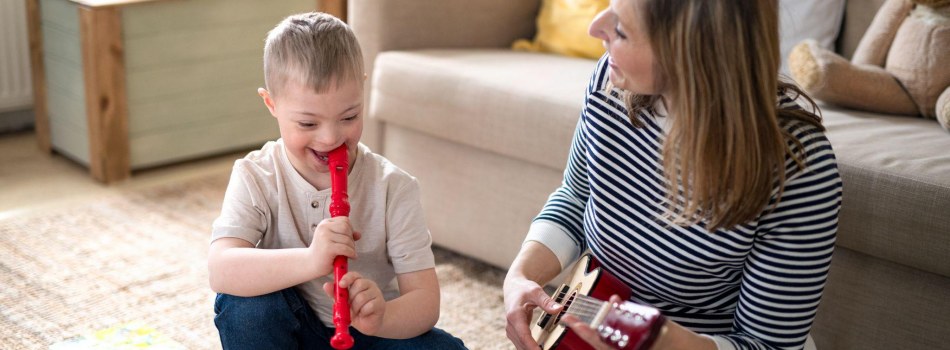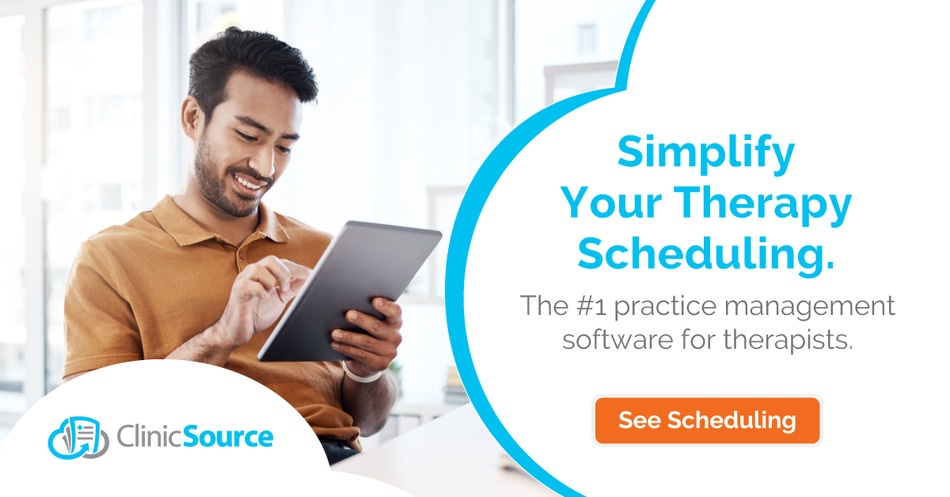
Highlights
- As a therapist, Music Therapy Month in March is the ideal time to refresh your knowledge about music therapy for mental health.
- Recent findings regarding music therapy treatments have found that this approach reduces stress, improves symptoms of dementia, and boosts social skills of children with autism.
- Incorporating music therapy into your treatment approaches can benefit your patients, giving them tools they can use to deal with anxiety, depression, and other mental health issues.
March is Music Therapy Month, making it the perfect time to focus on music therapy for mental health. This therapeutic approach is being used to help people reduce stress associated with mental health issues like anxiety and aid in substance abuse recovery. As a music therapist, knowing the evidence-based benefits of music therapy can help you provide your patients with high-quality care using the most recent findings on this effective treatment approach.
Music Therapy for Mental Health: Current Research
The use of music as a therapeutic tool has been shown to have a positive impact on a variety of mental health conditions, including depression, autism spectrum disorder (ASD) and dementia. Current research into music therapy can provide a deeper understanding of its potential benefits and how it can be incorporated into mental health treatment.
Stress Reduction
Music has a powerful effect on the human body and can promote relaxation to decrease cortisol levels, making it a potentially effective treatment for preventing stress-related mental health issues. A 2020 meta-analysis suggests that music therapy may be a suitable non-pharmacological alternative to provide stress relief.
However, the study found that the efficacy of music therapy for stress relief depends on several variables. For example, group music therapy was shown to be more effective at eliciting stress-reducing neurotransmitters like endorphin and oxytocin, which may be attributed to a group sense of belonging rather than the musical activity.
The researchers suggest that standardized music therapy protocols may allow for better insights into how music moderates the body’s stress response.
Dementia
Music has been shown to have a profound impact on individuals with dementia, as it can evoke emotions, memories, and a sense of familiarity. The repetitive patterns and predictable rhythms of music may also help individuals with dementia to improve their motor skills and coordination, reduce anxiety and agitation, and improve their overall quality of life.
A 2022 study suggested that music therapy may also be an effective way to prevent or decelerate neurodegeneration in dementia patients. The study showed that emotions evoked by music increase neurogenesis in the anterior hippocampus, which plays a crucial role in memory formation. This means that music therapy may protect against hippocampal atrophy in dementia patients.
Autism Spectrum Disorder
Music therapy has been used in the treatment of Autism Spectrum Disorders (ASD) in children since the 1940s. It may help improve communication, regulate emotions, and teach social skills. However, recent research suggests that the musical therapeutic approach can influence the treatment’s efficacy.
A 2021 systematic review states that improvisational music therapy, which uses children’s music production to promote spontaneous non-verbal communication, is more effective than interactive or music listening approaches. Several of the studies included in the review found that improvisational music therapy produced more positive clinical outcomes, including increased quality of life and pragmatic language use, than other music therapy approaches.

Depression
As a non-pharmacological treatment, music therapy may be an effective alternative for helping patients manage depression symptoms. A 2022 meta-analysis looked at the effects of music interventions in older adults with depression. The review’s findings indicated that active music therapy provided by a music therapist for at least 60 minutes per week was the most effective at reducing symptoms of depression.
In this study, active music therapy referred to singing, clapping hands, and playing musical instruments. This indicates that having patients engage actively with music or make music of their own may be the most beneficial for relieving depressive symptoms.
Substance Abuse Recovery
Substance abuse has become a growing issue in the U.S., with the CDC estimating 40.3 million adults experienced substance use disorder in the past year as of 2020. Music therapy may be useful in helping those with substance use disorder (SUD) alleviate psychological symptoms and decrease cravings.
A 2022 review compared trial results for SUD patient outcomes with standard care versus standard care with music therapy.
The review found that music therapy helped reduce cravings for about three months post-intervention. It also concluded that music therapy increased motivation for treatment for people in short-term rehabilitative settings. While researchers cited limitations with the studies they sampled, this review was highly conclusive that music therapy had a positive impact on managing cravings and improving motivation for some people with SUD.
Treat Your Patients with Music Therapy for Mental Health
Music therapy for patients with anxiety, autism, substance abuse, and dementia is an effective approach for improving their mental health. Providing music therapy treatment requires you as a therapist to be present in the moment and give you patient guidance and attention as needed.
To give your patients the best possible care, you need a therapy practice management software designed for therapists that streamlines your workflow so you can put more time into your client sessions.

ClinicSource therapy documentation software uses cloud-based technology to simplify documentation and practice management for your practice. The therapy-specific platform offers multiple functions, like customized reporting forms for adult and pediatric patients, an intuitive user interface, and SOAP note templates that streamline administrative tasks.
Mental health-specific features for MFTs, LPCs, and LCSWs include:
- Comprehensive case history with helpful highlighting function for relevant factors like family history, trauma, and prior treatment record
- Easy-to-use templates for DSM-5 and DSM-IV-TR diagnosis and treatment codes
- Customizable forms for assessment findings, intervention plans, and clinical recommendations
- 100% Drummond ONC Certified and HIPAA compliant
- Automated billing and insurance for more accurate invoicing and payments
Speak with a ClinicSource Specialist to book a demo and learn how cloud-based therapy EMR can support your music therapy treatments and improve patient outcomes.

Let Us Show You











